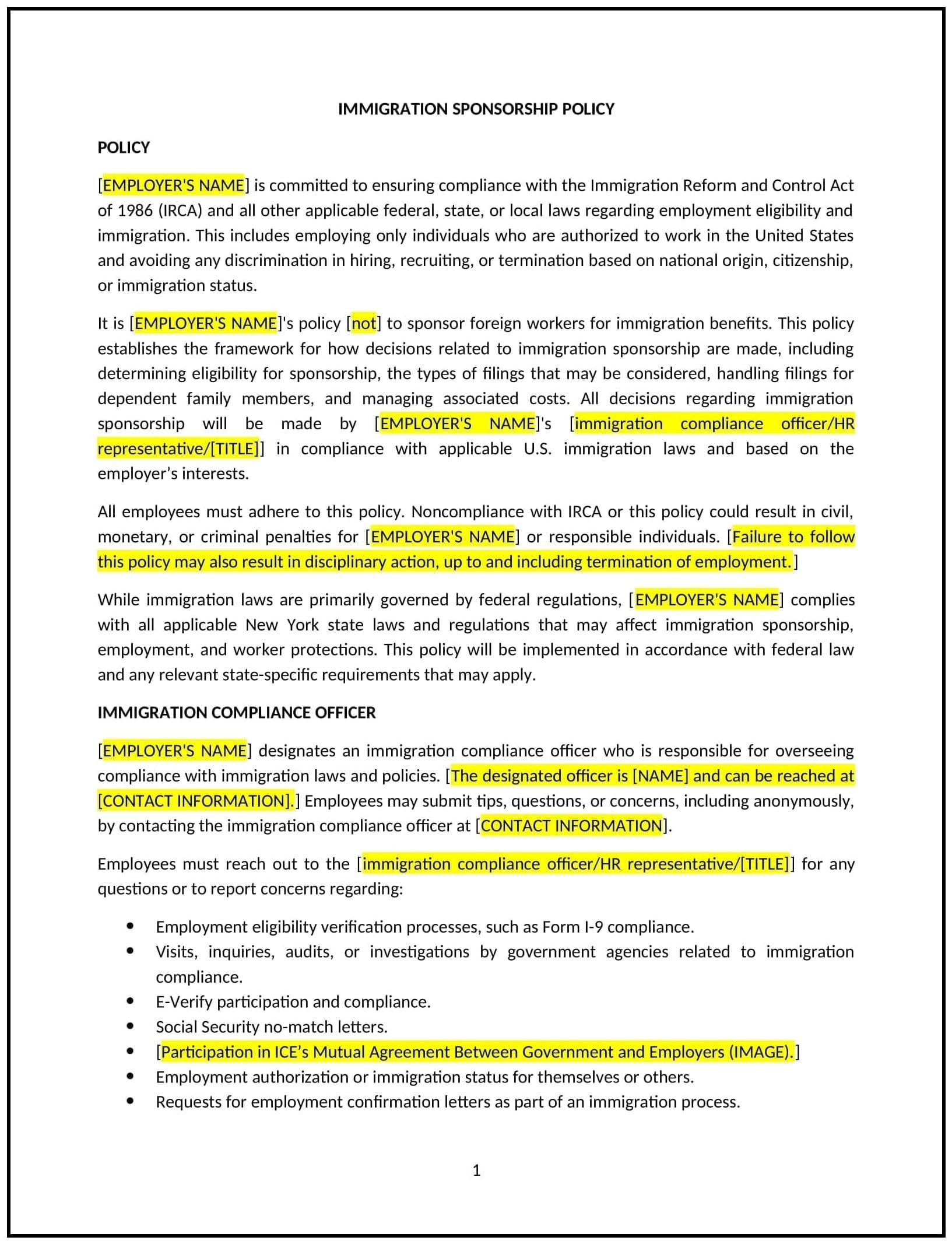Immigration sponsorship policy (New York): Free template
Got contracts to review? While you're here for policies, let Cobrief make contract review effortless—start your free review now.

Customize this template for free
Immigration sponsorship policy (New York)
This immigration sponsorship policy is designed to help New York businesses provide clear guidelines for supporting employees or candidates who require immigration sponsorship to work legally in the United States. Whether businesses are sponsoring visas for specialized roles, managing legal compliance, or supporting employees through the immigration process, this template helps ensure all key components are addressed.
By using this template, businesses can attract top talent, navigate sponsorship complexities, and support compliance with federal and New York state regulations.
How to use this immigration sponsorship policy (New York)
- Define sponsorship eligibility: Clearly outline the criteria for employees or roles eligible for immigration sponsorship, focusing on business needs and job qualifications.
- Specify sponsorship types: Detail the types of visas the business is willing to sponsor, such as H-1B, L-1, or O-1 visas, as well as processes for green card sponsorship.
- Include cost-sharing guidelines: Outline which costs the business will cover, such as filing fees or legal assistance, and clarify any costs employees may be responsible for.
- Explain application procedures: Provide instructions for initiating a sponsorship request, including required documentation and timelines for submission.
- Address compliance and monitoring: Highlight the business’s commitment to adhering to immigration laws, including record-keeping and reporting requirements.
Benefits of using an immigration sponsorship policy (New York)
This policy offers several benefits for New York businesses:
- Attracts top talent: Sponsorship opportunities make businesses more appealing to highly skilled international candidates.
- Enhances compliance: Clear processes help businesses stay aligned with federal and state immigration regulations, reducing the risk of penalties.
- Promotes transparency: Employees understand the sponsorship process, eligibility criteria, and expectations, fostering trust and engagement.
- Supports workforce diversity: Sponsorship policies encourage the inclusion of global talent, enriching the workplace culture.
- Minimizes delays: A structured policy streamlines the sponsorship process, reducing administrative delays and ensuring timely compliance.
Tips for using this immigration sponsorship policy (New York)
- Communicate clearly: Share the policy with employees and candidates during recruitment to set clear expectations about sponsorship availability.
- Work with legal experts: Partner with immigration attorneys or consultants to navigate complex sponsorship processes and maintain compliance.
- Monitor policy effectiveness: Regularly evaluate the policy to ensure it supports business goals and addresses employee needs effectively.
- Provide support: Offer guidance to employees throughout the sponsorship process, including assistance with documentation and responding to government inquiries.
- Update regularly: Review the policy annually to reflect changes in immigration laws or workforce needs.